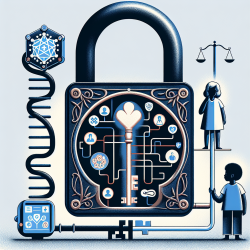Understanding the Impact of Zero-Tolerance Policies
Zero-tolerance policies in schools have long been a subject of debate. These policies, which mandate predetermined consequences for specific offenses, often result in severe disciplinary actions such as suspensions and expulsions. Unfortunately, these policies disproportionately affect Black, Indigenous, and People of Color (BIPOC) students, contributing to the school-to-prison pipeline. According to a study published in Behavior Analysis in Practice, BIPOC students are significantly more likely to face exclusionary discipline compared to their white peers, leading to inequitable educational and life outcomes.
Research Findings on Zero-Tolerance Policies
The research article titled Ending the School-to-Prison Pipeline: Perception and Experience with Zero-Tolerance Policies and Interventions to Address Racial Inequality highlights the persistent existence of zero-tolerance policies in North American schools. It reveals that while many school professionals, including behavior analysts, are aware of the adverse effects of these policies, they often feel ill-prepared to implement interventions aimed at reducing anti-Black racism in educational settings.
Behavior Analytic Interventions as Alternatives
Behavior analysis offers powerful tools to address the inequities perpetuated by zero-tolerance policies. The research suggests that school professionals possess the necessary skills to implement alternative, evidence-based interventions. These interventions include:
- Positive Behavior Support (PBS) interventions
- Social and Emotional Learning (SEL) programs
- Restorative justice practices
- Individualized behavior support plans
These approaches focus on reinforcing positive behaviors, teaching social skills, and involving parents and communities in the development of behavior programs. By adopting these strategies, schools can create a more inclusive and supportive environment for all students.
Encouraging Further Research and Implementation
While the study indicates that many professionals support the call to end zero-tolerance policies, it also highlights the need for more training and comfort in discussing and addressing racial inequities. Practitioners are encouraged to engage in self-reflection, seek intercultural competence training, and collaborate with professionals experienced in addressing systemic racism.
By leveraging the insights from this research, practitioners can improve their skills and contribute to dismantling the school-to-prison pipeline. Continued research and data collection are essential to understand the effectiveness of behavior analytic interventions and to develop new strategies for promoting equity in education.
To read the original research paper, please follow this link: Ending the School-to-Prison Pipeline: Perception and Experience with Zero-Tolerance Policies and Interventions to Address Racial Inequality.










